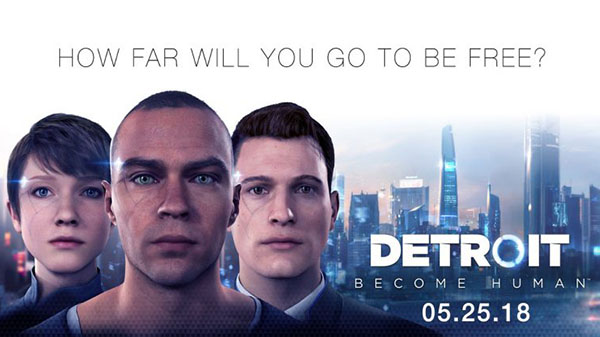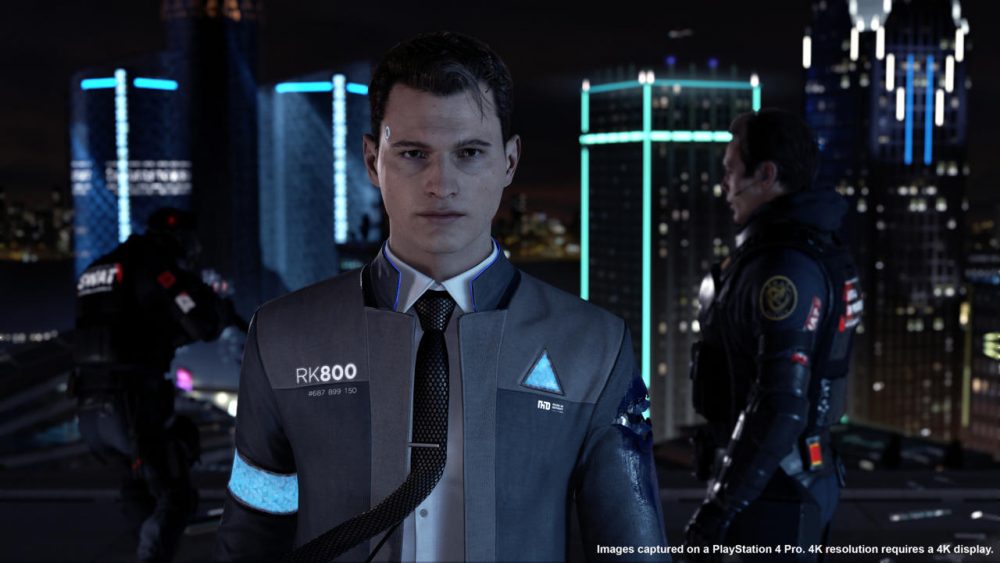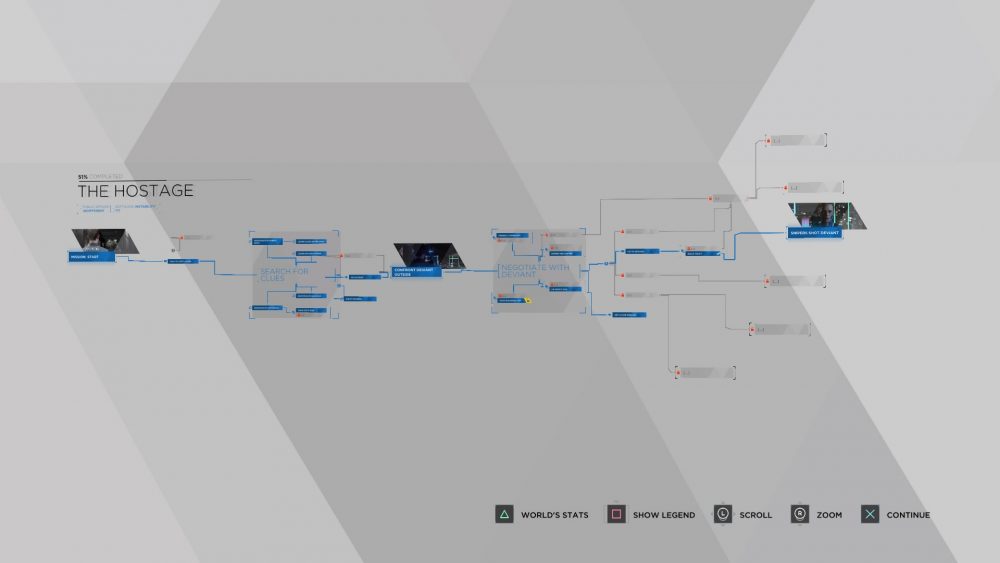One of the most interesting games coming out this year is Detroit: Become Human, a decision driven action story set in near-future metropolis of Detroit in 2038. A city rejuvenated by the introduction of highly advanced androids that exist only to serve mankind. You’ll play as three distinct androids whose moral decisions, you guide, will decide how the multi-branching narrative plays out.
While it has sharp looking fidelity, what’s most intriguing about it is the ambition of its storytelling. Making decisions that affect limited parts of the game isn’t anything new if you’ve played Walking Dead or Batman The Enemy Within, the difference with Detroit: BH is just how far the decisions you’ll make will travel through the game’s nervous system. Even if your decisions lead to the death of its any main characters Connor, Kara, or Markus, the story still continues. That’s like if halfway through Infinity War, Thanos simply said I don’t like gloves and we still got an hour of movie after that.
Detroit: Become Human is being developed by Quantic Dream, a studio whose previous titles included the Ellen Page and Willem Dafoe led Beyond Two Souls and the critically polarizing murder mystery Heavy Rain. The game’s director, David Cage has done several interviews hyping Detroit: Become Human as the biggest story the team has ever worked on. According to Cage, more than 250 motion capture actors were employed to portray the 513 characters present in the game’s 2000 page script. Put four reams of 500 sheet copy paper on top of each other and that’s the size of this game’s script.
The massive script translates to various amounts of narrative paths players will be able to take through decisions made over hours of tense moments. This past week, PlayStation released a demo of the game which lets you play through the hostage situation first shown at PSX. You’ll play as a hostage negotiator android named Connor who’s just walked into the scene of a gruesome murder perpetrated by a babysitting android waiting on building’s balcony holding the life of a child by the edge. By walking around the crime scene and investigating clues Connor unlocks additional dialogue choices to use in the upcoming intervention and parts of the overall story. In nearly every part of the game, you’re under the pressures of getting a desired outcome and a time crunch. Upon my first playthrough during PSX, I took my time to examine the room as other officers were being shot at by the renegade android. Having all the facts allowed me to reason with the kidnapper in order to release the child he’s standing with at the edge of a rooftop, safely.
Detroit: Become Human is a game of choice and branching narratives, at the end of the scene or by pressing options you can see the amount of paths your choices would have unlocked. While playing the scene over, my words pushed the android over the edge both emotionally and physically as he attempted to jump with the young girl, I was able to grab her and push her back to safety but fell to my death along with the kidnapping bot. When the full game releases, should something like that be the result of your actions the story will still continue. It’s not clear yet if Quantic simply pulls a DC Cyborg trope and puts the android protagonist back together somehow or you’ll go down a completely different path.
A story with the amount of fluidity Quantic Dream is aiming for comes with trappings which could find its legs caught in. Should players connect with one of the three main characters then lose that android early on, how much would you want to continue the story? You could find yourself giving too much time replaying scenarios till you’re content with the outcome. Can Quantic deliver a concise and clear message through a story that by its nature is constantly edited through player actions? Personally, I’m hoping the studio can deliver on its multi-layered promise.
On the surface, this new race of androids in the game is acting as an allegory for real life marginalized people. There’s a lot of potential resonance in what we’ve seen from the game so far with material capable of sparking conversation on topics such as domestic abuse, racism, the extent of civil rights. Like most things, critics have voiced concern over its handling of sensitive subject matter for its depictions of instances mentioned. While there are hundreds of ways the game could go south; we’re willing to wait and see what the final product gives players and let history judge the place of Quantic Dream’s labor.










